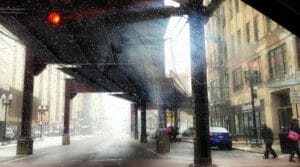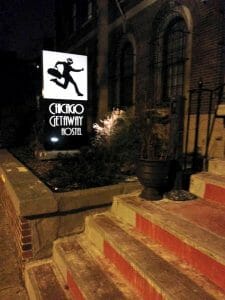No matter your travel budget, no one likes spending more than they have to. Whether you're part of a student group or looking to take your kids for an educational trip, here are some tips on how you can save money and have a great time.
Take more people and split costs: It may seem simple but the more people you pack into a hotel room, the less each person has to pay for the stay. This also works for carpooling road trips. Also, when eating out, share an entree and an appetizer between two or more people to save money.
Avoid tourist traps: In every major city, there are restaurants and shops that hike up the price just because they know tourists will pay extravagant fees to eat/shop there. Touristy restaurants include those most of those owned by reality TV stars, those near tourist attractions (it's the location that you're paying for, not the food), those in guidebooks you bought from the bookstore, or chain restaurants with kitschy decor (i.e. Joe's Crab Shack and Hard Rock Cafe). Often times, the food will be mediocre even if the location is great - and why would you want to eat someplace you could get at home?

Chicago Transportation Credit Danielle Bopp
Utilize public transportation: There's no need to rent a car while visiting big cities unless you're planning day trips to the surrounding countryside or neighboring cities. Buses and subways will always be cheaper than taking a cab a few blocks, and using car-sharing programs can save you money (i.e. ZipCar, Hertz on Demand, Enterprise CarShare).
Head to "jump-off cities:" Cities that are considered to be "jump-off" spots include those that make it easy for day trips and more diverse touring without a long commute. If you're in Los Angeles, take a trip to San Diego, San Francisco, or even Napa. If you're in Washington, D.C., tour Virginia and see Monticello and Mount Vernon. If you're in Vegas, drive the 250 miles to the Grand Canyon. You get the picture.
Research free attractions: Every city, no matter how expensive, has free attractions be it museums or parks and botanical gardens. Fill in your daily itinerary with free attractions and cut down on places that charge admission to save some moolah. Also, most high priced museums offer free museum days (the first Tuesday or Thursday of every month, etc.) or free afternoons for student visitors. Check out this blog on free attractions to get an idea of what you can do and where.

Budget Lodging Credit Danielle Bopp
Be smart about hotels: Obviously you don't want to be dumb about choosing a hotel but sometimes the internet and hotels themselves can trick you into paying more. First off, don't go straight for the four-star hotels in the middle of downtown and opt for those on the outskirts of town. Hotels near airports or along the highway are always cheaper, no matter if it's three or four or even five stars. Secondly, call the hotel before booking online. It's nice to think that Expedia and Hotels.com have your best interest at heart but they're trying to make money, too. Call and ask to talk to the hotel manager or supervisor and see if they can make you a better deal - ask if there are any unwanted rooms next to the elevator or not facing a particularly nice view. Also, say if it's your birthday or anniversary. Finally, almost all hotels have hidden fees that jack up the final bill. To avoid hidden costs, ask for all costs to be disclosed at check-in and decline certain services like newspaper delivery to save big bucks.
Use that smartphone: You pay monthly for it so why not put it to good use? There's no reason to pay for guidebooks. Where guidebooks offer some tips, they are often outdated and not quite in touch with what the city actually has to offer. Travel apps, on the other hand, are for the most part created and maintained by current reviews from travelers. Just like with buying products online, check the reviews of restaurants and attractions to make sure they're good enough to spend time and money on. Also, if you're renting a car or road-tripping, use your phone to search for the best gas prices. Some travel apps worth looking into: TripAdvisor, Goby, GasBuddy, CityMapper, and Localeur.
For longer stays, look into renting: If you're staying longer than a few days, renting a cabin, apartment or small house might be more prudent than spending a ton on nightly hotel stays. In big cities, you can find a small two-bedroom apartment for around $300 a night and compared to two hotel rooms, that's quite a bargain. Plus, with a rental, you get a fully functioning kitchen so you can save money on food by buying ingredients and cooking rather than eating out.
Budget your food: Most people spend the majority of their vacation budget on food because let's face it, you use your time away from home to break diets and eat delicious food. Thus said, the best way to save money on food is to hit up mom-and-pop restaurants, local favorites, or even cooking on your own. If you do want to eat somewhere fancier than a diner, make lunch your main meal as lunch menus are almost always cheaper than dinner. As said before, you can also share food between friends to cut the price in half.
Be smart about your money: Duh, right? But seriously, tourists are targets for thieves so you don't want to keep all of your money in one place, or all in one medium. For example, keep a little cash for on-the-spot streetside purchases, don't overuse your credit card as their numbers are easily stolen, and maybe use a money belt to keep your money close to your body. Also utilize ATMs rather than traveler's checks, check for the best deals in the area, and don't fall into the tourist traps and resist buying kitschy souvenirs.
Extra tips:
- Consider city tourism cards
- Look into using Amtrak rather than flying
- If you do fly, search prices at smaller alternate airports
- Travel in the off-season
- Stay in less crowded hotels - business hotels during the weekend, boutique hotels during the week
- Haggle at markets where appropriate
- Recreational activities are cheap or free
- Participate in community activities, festivals, fairs, and events
- Ask if there are discounts for students, groups, etc.
- Head to cities recovering from natural disasters or recessions







